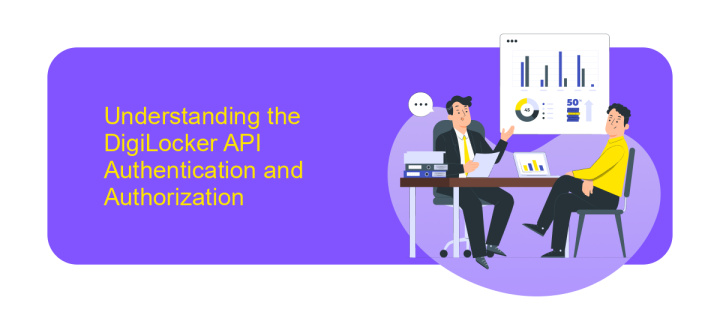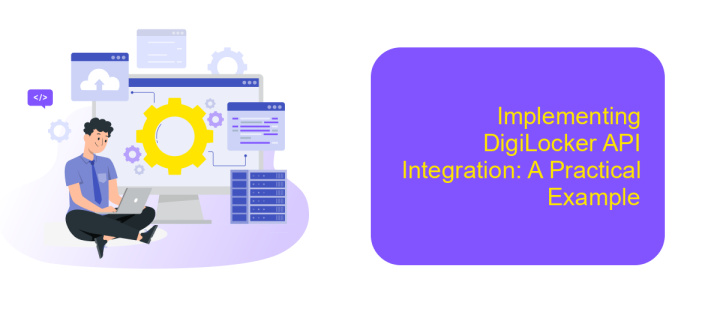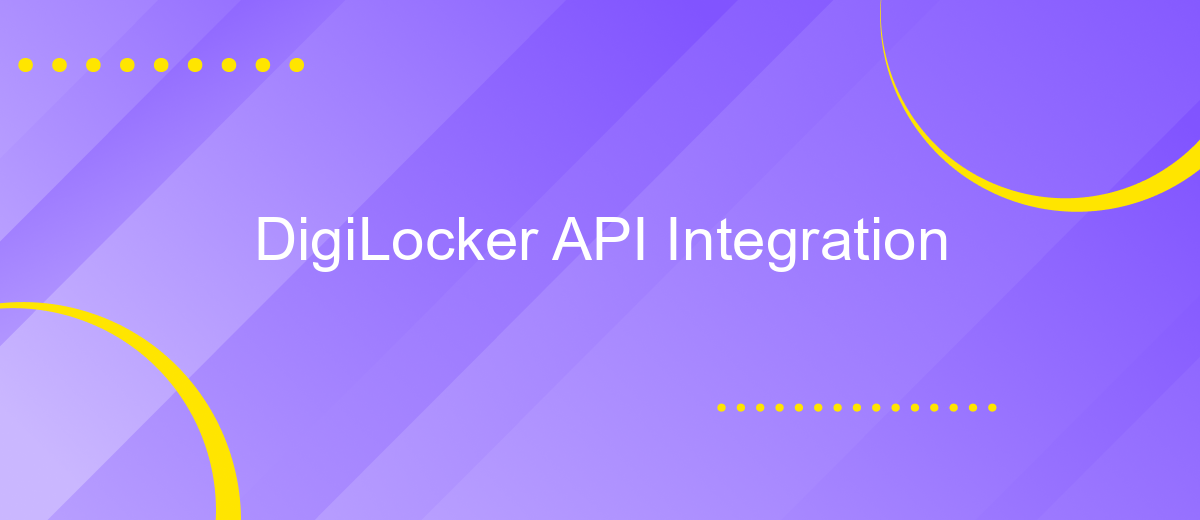DigiLocker API Integration
The DigiLocker API Integration revolutionizes how organizations access and manage digital documents, offering a seamless and secure way to integrate with India's national digital locker service. By leveraging this API, businesses can streamline document verification processes, enhance user experience, and ensure data integrity. This integration not only simplifies workflows but also aligns with the growing demand for digital transformation and paperless solutions in today's fast-paced digital world.
Introduction to DigiLocker and its API
DigiLocker is a revolutionary initiative by the Government of India aimed at transforming the way digital documents are stored and accessed. It serves as a secure cloud-based platform where citizens can store, share, and verify essential documents like driving licenses, educational certificates, and more. This digital locker system not only reduces the need for physical document handling but also enhances the efficiency and transparency of various administrative processes.
- Secure storage for digital documents.
- Easy sharing and verification of documents.
- Reduces reliance on physical document handling.
- Enhances transparency and efficiency in administrative tasks.
- Facilitates seamless integration with various governmental and private services.
The DigiLocker API provides developers with the necessary tools to integrate DigiLocker services into their applications. This allows for seamless access to digital documents, enhancing user experience by eliminating the need for manual document uploads. By leveraging the API, organizations can streamline processes, improve service delivery, and ensure data accuracy and security. This integration is pivotal for businesses and governmental agencies aiming to provide digital-first services to their users.
Understanding the DigiLocker API Authentication and Authorization

Understanding the authentication and authorization mechanisms of the DigiLocker API is crucial for secure and efficient integration. Authentication is the process of verifying the identity of a user or application trying to access the DigiLocker services. It typically involves the use of API keys or OAuth tokens, which must be securely stored and managed to prevent unauthorized access. Once authenticated, the next step is authorization, which determines the level of access granted to the authenticated entity. This ensures that users or applications can only perform actions and access data that they are permitted to, maintaining the integrity and security of the DigiLocker ecosystem.
To facilitate seamless integration with the DigiLocker API, services like ApiX-Drive can be invaluable. ApiX-Drive offers tools and resources that simplify the process of connecting and managing API interactions. By utilizing such services, developers can streamline the setup of authentication and authorization protocols, ensuring that their applications interact with DigiLocker in a secure and compliant manner. This not only saves time but also reduces the complexity involved in manual configuration, allowing developers to focus on building robust applications.
Key API Endpoints and their Functionality

The DigiLocker API offers a suite of endpoints designed to facilitate seamless integration with its digital document storage and verification services. These endpoints provide developers with the tools necessary to access, manage, and verify documents stored within the DigiLocker system, enhancing digital workflows and reducing paperwork.
- Authentication Endpoint: This endpoint is used to authenticate users and obtain access tokens required for further API interactions.
- Fetch Documents Endpoint: Allows retrieval of documents stored in a user's DigiLocker account, enabling easy access and sharing.
- Upload Documents Endpoint: Enables users to upload new documents to their DigiLocker account, facilitating digital storage.
- Verify Documents Endpoint: Provides functionality for verifying the authenticity of documents, ensuring their legitimacy and integrity.
- Search Documents Endpoint: Offers the ability to search for specific documents within a user's account using various filters and criteria.
These endpoints collectively enhance the functionality of DigiLocker, offering a robust solution for digital document management. By integrating these APIs, developers can create applications that streamline document handling processes, ensuring security and efficiency in digital transactions.
Implementing DigiLocker API Integration: A Practical Example

Integrating the DigiLocker API into your application can greatly enhance its functionality by allowing seamless access to digital documents. The process begins with registering your application on the DigiLocker developer portal, where you obtain the necessary credentials, such as the client ID and secret. These credentials are crucial for authenticating your application with the DigiLocker system.
Once you have the credentials, the next step involves setting up the API endpoints in your application. This typically requires configuring the OAuth 2.0 authentication flow to ensure secure communication between your application and DigiLocker. Proper implementation of this step is essential to maintain the integrity and security of data exchanges.
- Register your application on the DigiLocker developer portal.
- Obtain the client ID and secret for authentication.
- Configure OAuth 2.0 for secure API access.
- Implement API endpoints in your application.
By following these steps, developers can effectively integrate DigiLocker API, enabling users to access and manage their digital documents effortlessly. This integration not only improves user experience but also ensures that document management is both secure and efficient.


Best Practices and Troubleshooting for DigiLocker API Integration
When integrating DigiLocker API, it's essential to adhere to best practices to ensure seamless functionality. Start by thoroughly understanding the API documentation and ensure that all endpoints are correctly implemented. Use secure authentication methods to protect user data and maintain compliance with privacy regulations. Regularly test the integration in a sandbox environment to identify and resolve issues before they affect end-users. Additionally, consider leveraging integration platforms like ApiX-Drive to streamline the process, as they offer tools to automate and simplify API connections without extensive coding.
Troubleshooting common issues in DigiLocker API integration involves a systematic approach. First, verify all API keys and credentials to ensure they are current and correctly configured. Monitor API logs to identify any error messages or unusual activity that could indicate a problem. If the integration is not functioning as expected, check for any recent updates or changes in the DigiLocker API that may require adjustments in your implementation. Lastly, engage with the developer community or support forums for insights and solutions to complex issues you might encounter.
FAQ
What is DigiLocker API Integration?
How can I start integrating DigiLocker API into my application?
What are the benefits of integrating DigiLocker API?
Are there any security concerns with using DigiLocker API?
Can I automate the integration process of DigiLocker API?
Time is the most valuable resource for business today. Almost half of it is wasted on routine tasks. Your employees are constantly forced to perform monotonous tasks that are difficult to classify as important and specialized. You can leave everything as it is by hiring additional employees, or you can automate most of the business processes using the ApiX-Drive online connector to get rid of unnecessary time and money expenses once and for all. The choice is yours!

